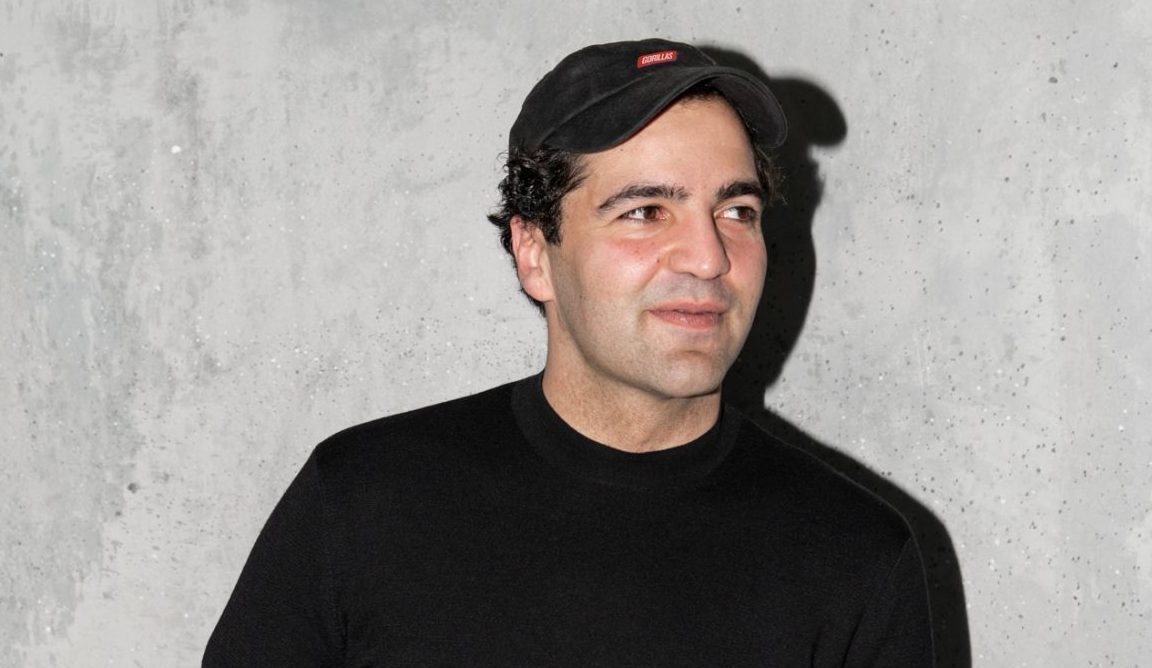Earlier this month, 12 weeks after Sifted revealed its existence, Spotify founder Daniel Ek finally launched his new healthtech venture.
It’s called Neko Health, and it’s building a full-body scanner that it says could revolutionise preventative care — the holy grail for many healthcare systems.
Before Sifted's story, very little information had leaked about the startup that Ek and his cofounder Hjalmar Nilsonne had been working on for four years.
That air of mystery seems to have worked wonders for Neko — its name is from the Japanese word for cat, playing on how cats are often seen as symbols of health. Within two hours of the startup’s launch, all available body scanning slots were taken and 5,000 people have been put on the waiting list. According to company sources, the list will keep Neko occupied for the next two years.
But is the hype matched by the product? Sifted was one of the lucky few to get a €180 appointment to try it out.
No name on the door
Neko has set up shop in the middle of the central shopping district in Stockholm.
There’s no sign or logo on the door, and all you can see from outside is a small glass-walled waiting room.
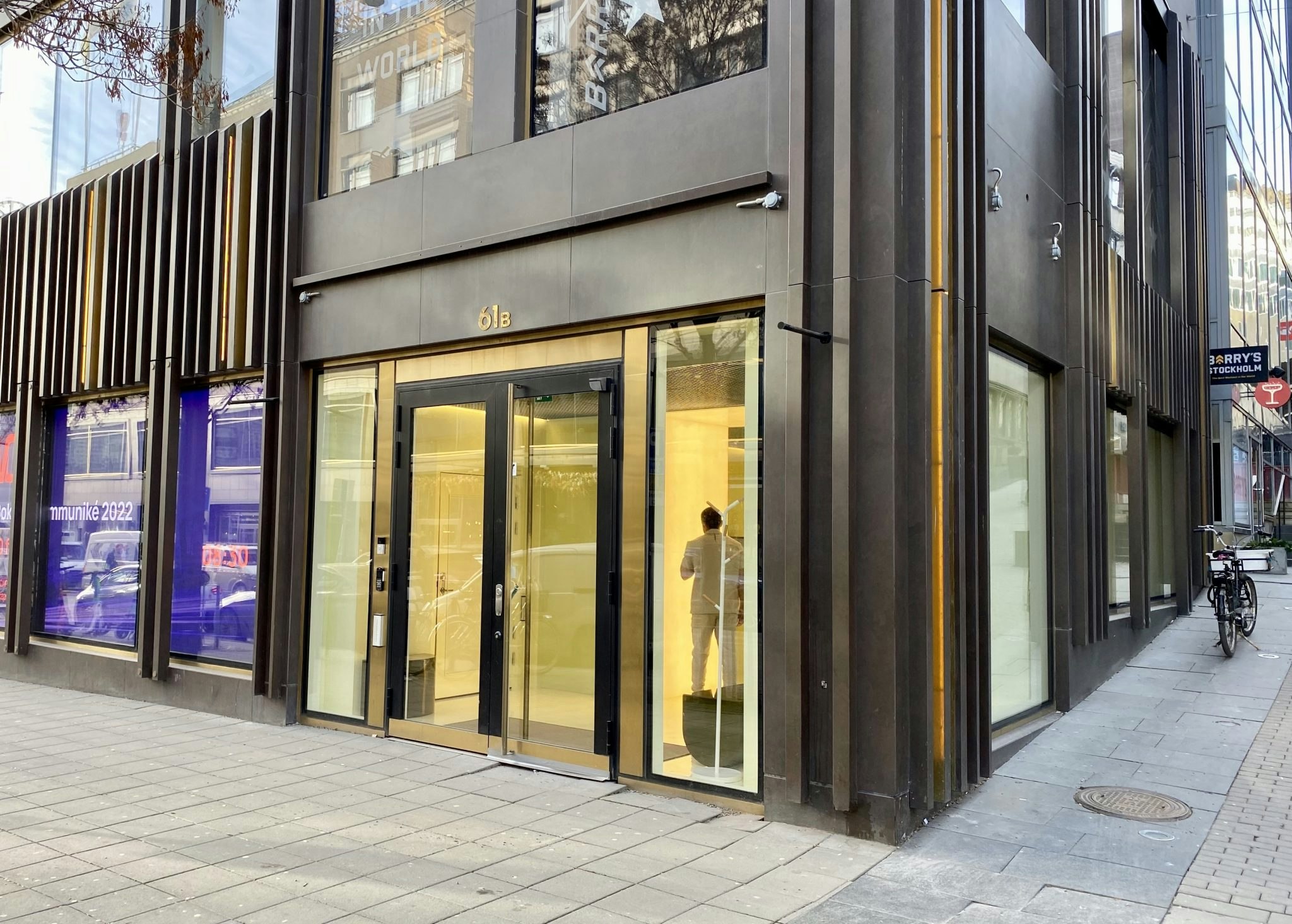
When I arrive I’m met by a doctor straight away, who asks me to take my coat off and take a seat. I feel like I’m in a small aquarium.
After a minute a doctor comes out and asks me about the family health history and other details I’ve had to provide online before the appointment. I’m then shown into a small cabinet to strip; slippers and a bathrobe are waiting for me. Then it’s onto the main event: the body scanner.
'Close your eyes and take a deep breath'
The clean, shiny, yellow-walled room I go into next feels more like a spaceship than a GP surgery. I’m met by not one but two doctors, who explain what they are trying to do at Neko.
Instead of the usual primary care offering — quickly seeing patients and then telling them to come back if they're not feeling better within a week — Neko wants to use its slick and speedy technology to give doctors back time to talk to patients about the most important thing: their future.
And the future is very much a part of Neko.
I step into the full-body scanner, and the circular door swings round to close me in. I can see a load of cameras and lighting embedded in the wall. A smooth robot-like voice that wouldn’t be out of place in a sci-fi film tells me what will happen next and how to stand. I strike the same pose as I do in airport security.
“Close your eyes and take a deep breath,” the voice says. A humming starts — but it’s not actually coming from the machine itself. It’s another special effect, pumped into the chamber (I later find out that Ek came up with that, and the voice).
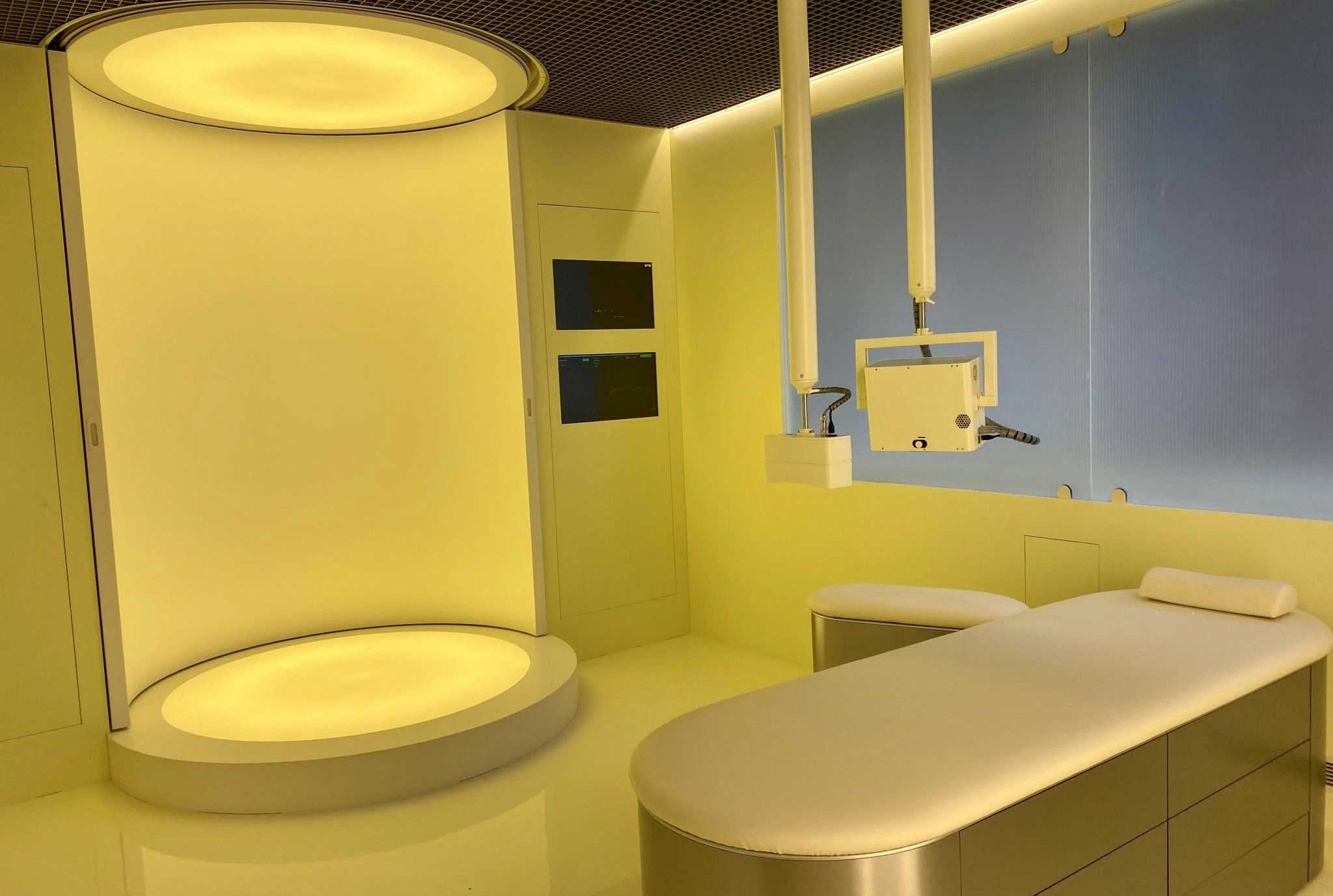
I’ve been warned that the light will be very bright; it actually warms my winter-cold skin.
2,000 pictures are taken of my body in both 2D and 3D, including thermal images. The scanner reveals hundreds of irregular colour markings on my skin and two birthmarks that are flagged for the doctor to take a closer look at.
“A machine like this would be a dream for any dermatologist,” one of the doctors says.
Then it’s time to lie down on the bed and have eight different pieces of measuring equipment strapped to me. I also have an ECG taken, and laser beams scan my throat and chest.
To finish off, a machine looks at my underarm to see how my blood is circulating in the smallest vessels. It projects different patterns of light, which my skin absorbs, reflects and spreads throughout the microvessels (I’m told), which shows how the blood is circulating. I’m not allowed to take a voice recording and only photograph some of the equipment. Pretty soon I’m starting to struggle to remember what all the different contraptions are for.
I also have to give some blood. This is the only invasive part of the check-up — and having my eye pressure checked. Both these jobs are carried out by doctors, not machines.
And then we’re done.
The diagnostics
Once dressed, I’m allowed back into the scanning room for my consultation.
My blood test results are already ready — and the computer has also gone through all the irregular dots on my skin and flagged those that the doctor should have a look at. It’s all amazingly quick.
“Do you recognise this person?” one of the doctors says, pointing at a screen where a green-blue dotted avatar emerges. “No,” I answer. Surely I’m not that short and chubby?
Unfortunately, it is me. What I find out about my health is that I have a good balance of good and bad cholesterol, and there’s a 98% chance that I won’t have a heart or vein issue within the next 10 years. All my other measurements — including blood sugar and waist size — are fine and I don’t need to worry about any of my birthmarks (at this point). My haemoglobin levels are maybe a bit high (the opposite of anaemia), probably caused by slight dehydration, I’m told.
“You are a healthy strong young woman,” the doctor concludes. I’m delighted.
If, however, the scans had revealed a problem — like high blood sugar or high blood pressure — I could have got a referral to a specialist.
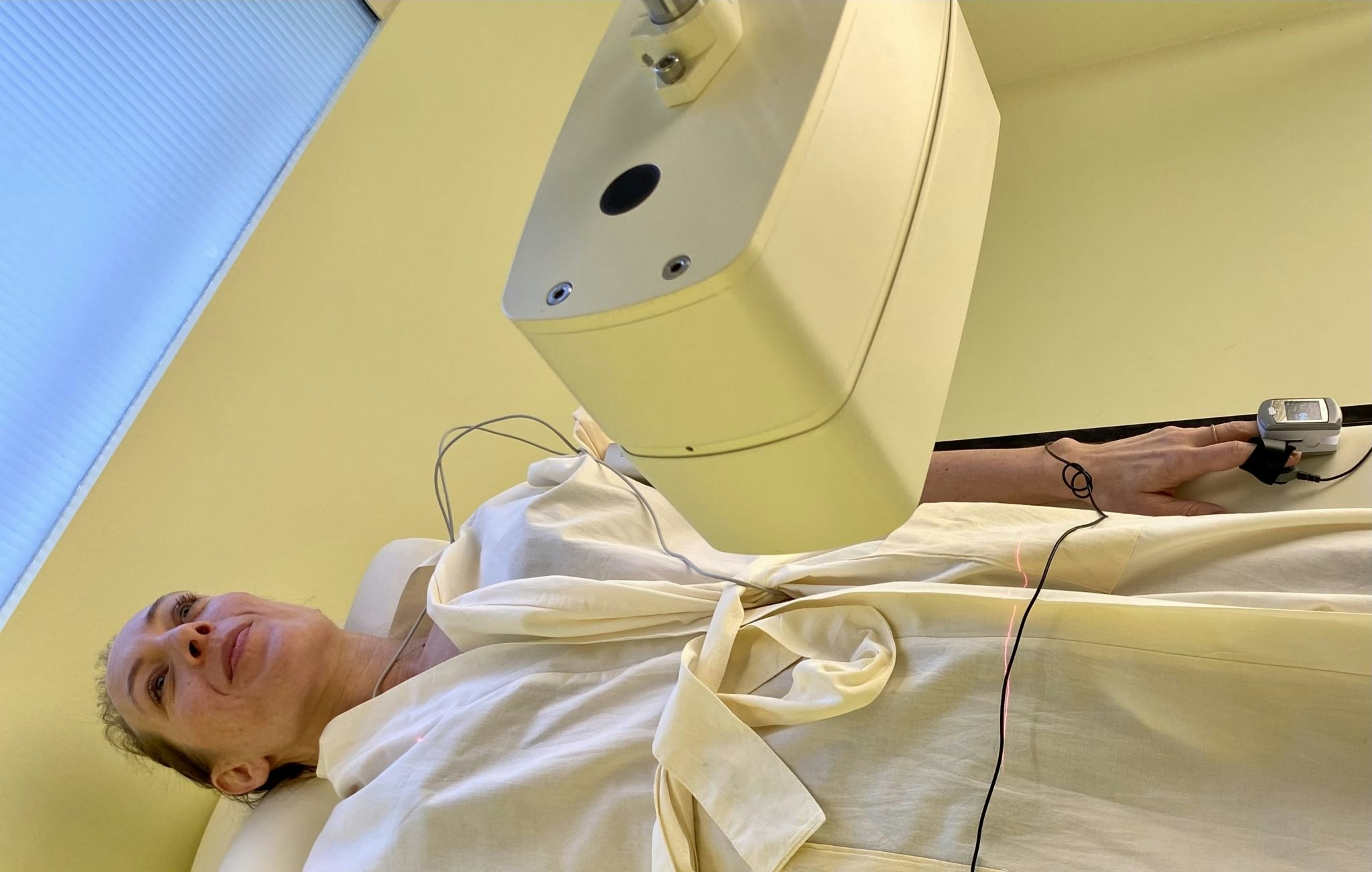
The data that's shared with me is just a tiny fraction of all the data collected — and I’m not the only one who gets to see it.
At present, the data collected by Neko is being used for three different clinical studies; two for skin conditions and one on arterial stiffness and heart disease risk assessment. It’s open to participating in more studies in the future too.
The criticism
It’s calm inside Neko’s clinic — but outside, Ek has kicked up a bit of a storm.
“Isn’t it strange that since 1965 we inspect our cars every year — but we wait until our bodies fall apart before we do something about it?” Ek wrote in a press release announcing Neko’s launch.
On Twitter, Swedish medical professionals were quick to point out that people are not cars and looking after human health is a tad more nuanced than automobile health.
There are no easy solutions to hard problems, not even AI
The main concern is that Neko’s screenings will find "issues" that aren’t really a problem, which the healthcare system will then have to spend time and money looking into — instead of dealing with people who are actually sick, according to Marina Tuutma, president of Swedish union of GPs.
“There are no easy solutions to hard problems, not even AI. Deviations in our bodies are happening all the time, many that the body takes care of itself and therefore never become a disease. To start treating those issues before they become diseases is a cost both in resources and money and there is no evidence that more screening will make healthcare cheaper but may cause unnecessary suffering and complications,” Tuutma says.
Before leaving the clinic, I ask one of the doctors what she thinks of the criticism.
“They don’t understand what we are doing,” she says.
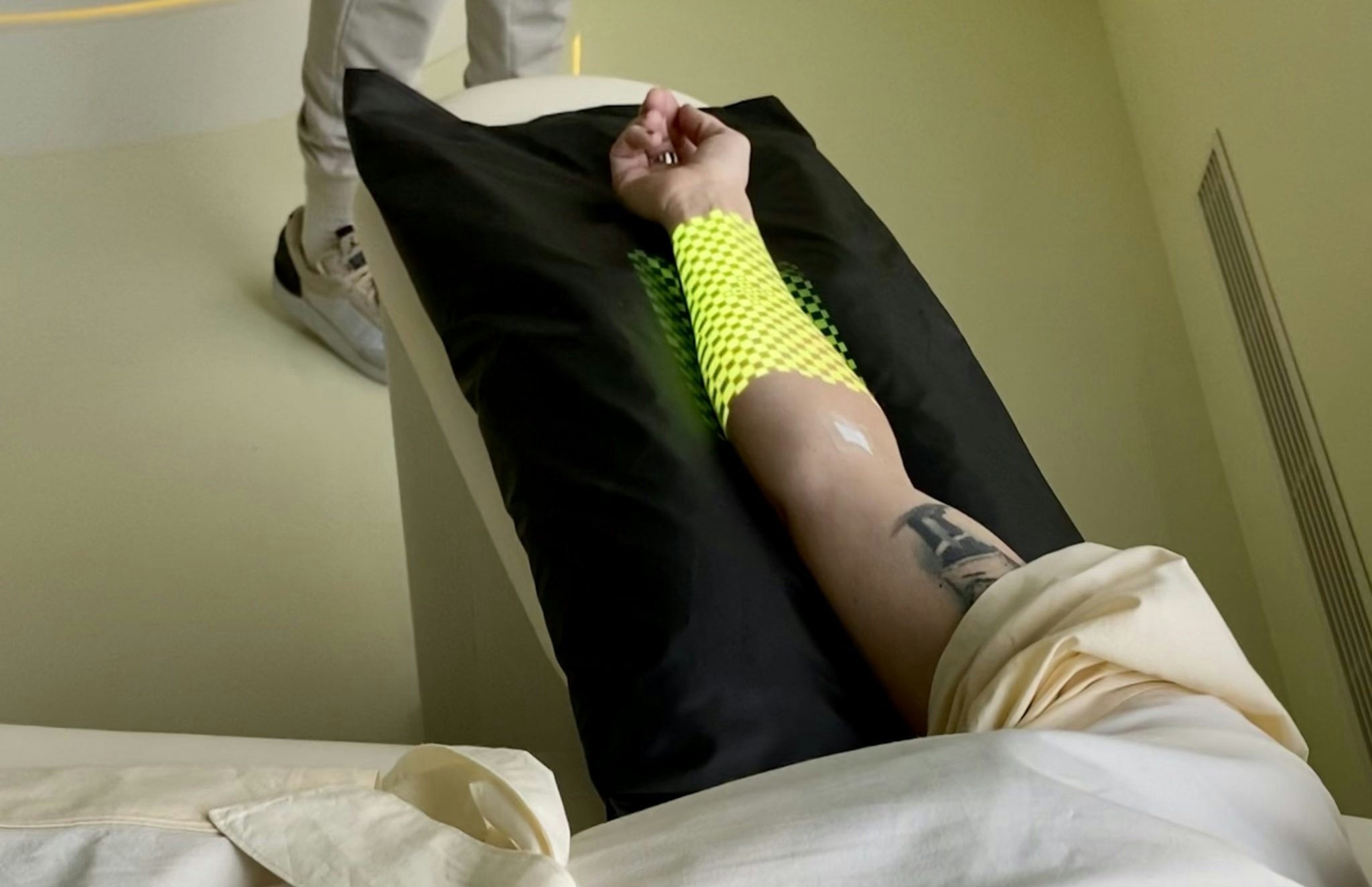
What’s next
I’ve been at Neko’s clinic for about an hour — even though the scanning (with 50m data points collected) took only around 15 minutes. That means Neko can see about nine people a day at each facility.
Eventually, it plans for nurses rather than doctors to manage the skin diagnostics device, blood, laser, radar and ECG tests.
I’m told Neko — which has raised €30m so far, including from Ek’s own firm Prima Materia — will open up more facilities in Stockholm, and won’t stop there. Where and when it’ll go next is unclear, but it’s likely to be in countries where preventative care is valued — perhaps Switzerland, perhaps the US.
On my way out, I notice that there are two people in the waiting room — and the doctor looks a bit surprised. Double bookings can clearly still happen in futuristic healthtech startups.


